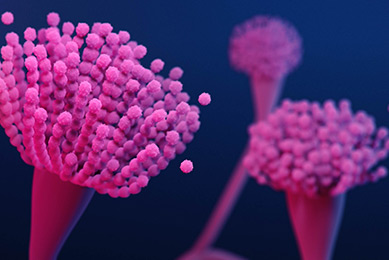Why It’s Important
C. auris is an emerging pathogenic yeast belonging to the Candida genus, which are a type of fungi that can colonize human skin and mucous membranes. Since it was first identified in 2009 in Japan, C. auris has spread rapidly across continents, causing outbreaks in healthcare settings and alarming health authorities worldwide. The Centers for Disease Control and Prevention (CDC) is warning about C. auris for three main reasons:
- Strains of this species are often resistant to multiple antifungal drugs commonly used to treat Candida infections. This resistance is due to genetic mutations, making the fungus highly adaptable and capable of surviving in various environments.
- This species is difficult to distinguish from other more common Candida species when using standard laboratory methods. Special lab tests are needed to accurately identify C. auris so that appropriate treatment can be administered.
- It has caused outbreaks in healthcare facilities and is associated with a high mortality rate. Its ability to persist on surfaces, survive in the environment for long periods, and spread easily between patients makes it a formidable nosocomial threat.
What’s the solution
Continuous research efforts are crucial for unraveling the complexities of C. auris and developing innovative solutions to prevent outbreaks. Ongoing studies focused on the genomics, molecular mechanisms, and virulence factors of C. auris are instrumental in understanding its pathogenesis and identifying potential targets for therapeutics and vaccines. In order to do so, it is important to have authenticated reference materials and data.
How ATCC can help
To support research on this pathogen, ATCC offers several whole-genome sequenced strains of C. auris, including the type strain. These strains can aid in the development of rapid diagnostic tools and novel antifungals or in epidemiological studies. The genomes are available on the ATCC Genome Portal: a comprehensive collection of high-quality genomics reference data for authenticated microbial cultures from the ATCC collection. Each assembly on the ATCC Genome Portal includes metrics for sequencing quality, assembly completeness, genome annotations, and metadata such as antibiotic susceptibility, isolation data, origins, and phenotypic data.
Through collaborative research combined with enhanced surveillance, robust infection prevention, prudent use of antifungal medications, and global cooperation, we can strive to understand, combat, and mitigate the impact of C. auris, ensuring the safety and well-being of patients within healthcare settings and beyond. By joining forces with ATCC, together we can confront this formidable challenge and protect public health.
Hai-y Le, MA
Digital Content Specialist
Hai-y is a Digital Content Specialist at ATCC who loves collaborating with her colleagues and communicating essential information to the public to galvanize better health and science outcomes. She previously worked at the Public Health Department of Santa Clara County, California, wrote for The San Francisco Chronicle, and coordinated editorial content at The Atlantic Council think tank in Washington, D.C. She has an MA in Communication and BA from Stanford University.
Linda Holloway, MS
Product Specialist, Microbiology, ATCC
Linda Holloway is a Product Specialist for Microbiology. She has an BS in Microbiology and an MS in Molecular Biology with several years of experience in both the Mycology and Molecular Biology labs at ATCC. In addition, she was the Lead Technical Information Specialist with ATCC Technical Services and a Custom Services project manager.
Explore other drug-resistant microbes

Drug-resistant Fungi
ATCC provides authenticated fungal strains for the development, verification, and evaluation of novel antifungal drugs.
MoreDrug-resistant Bacteria
ATCC offers authenticated antimicrobial-resistant bacterial strains that provide essential tools for the development of novel therapeutics and detection methods.
More
Drug-resistant Protozoa
ATCC provides strains of drug-resistant protozoa to scientists who are developing novel therapies and diagnostic assays to eradicate drug-resistant pathogens that cause diseases such as malaria and African sleeping sickness.
More